Learning about astronomy is great fun for children because it includes interesting topics such as the sun, moon, planets, and more. This astronomy unit study includes a collection of printables, books, and learning activities to help you put together a fun learning theme.
If learning with themes is new to you, check out my post on How to Easily Create a Themed Unit Study.
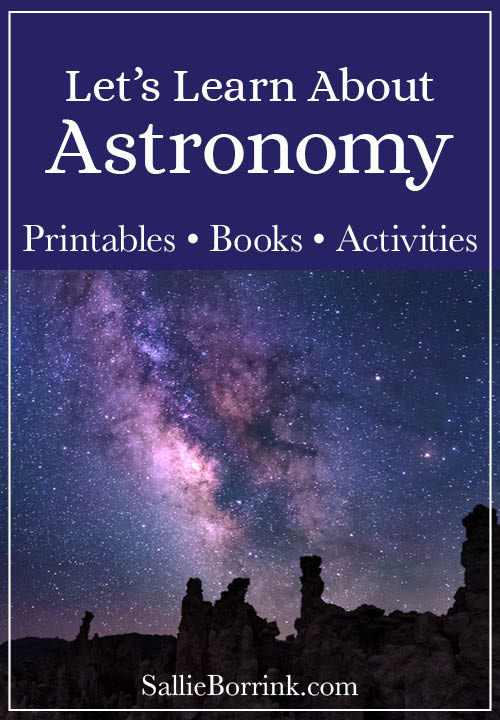
Planning an Astronomy Unit Study
Unit Study Planner: As you read through the ideas in this post, you can start making a list of what you want to include for your themed study. Include only the activities that make sense for your children and your family’s goals. Use the Unit Study Planning Pages.
Astronomy KWL: I suggest you start with an Astronomy KWL. Your child tells you what she knows (or thinks she knows) about the topic, what she wants to know, and (at the end) what she has learned. KWLs are a great way to document your child’s learning, especially if you use a more relaxed approach to homeschooling.
Depending on the age of your child, you may want to record her answers on this sheet yourself rather than asking her to do it. The important thing is the content of what she’s saying, not whether or not she can write it down. If writing will slow her down, let her dictate her answers to you.
Books For Your Astronomy Unit Study
Non-Fiction: If you are looking for some informative books to add to your astronomy study, here are a few. (As always, please review them ahead of time to make sure they align with your family’s viewpoint.)
- Ultimate Explorer Field Guide: Night Sky: Find Adventure! Go Outside! Have Fun! Be a Backyard Stargazer!
- My First Book of Planets: All About the Solar System for Kids
- Space Encyclopedia: A Tour of Our Solar System and Beyond
- National Geographic Readers: Planets
- 13 Planets: The Latest View of the Solar System (National Geographic Kids)
Picture Books: If you are looking for some fun picture books, here are a few.
- The Magic School Bus Lost In The Solar System
- Mousetronaut: Based on a (Partially) True Story
- Moon: A Peek-Through Picture Book
- Solar System Amazing Space Adventure
Astronomy Vocabulary, Spelling & Word Search
Choose several spelling words that are appropriate for your child’s ability. If you don’t do formal spelling, you can use this list for vocabulary discussion.
- space
- star
- moon
- planet
- astronaut
- astronomy
- explore
- rocket
- asteroids
- Mercury
- Venus
- Earth
- Mars
- Jupiter
- Saturn
- Neptune
- Uranus
- Pluto
For fun, create a word search using words from the word list above using the Word Search Template.
Astronomy Fun Facts
If you are interested in learning lots of fascinating facts about astronomy, these fun fact cards are available in my printables shop. There are many fun ways to use them which I explain here.
Use this Facts About Graphic Organizer Worksheet as a way to keep track of important facts or your favorite fun facts you learn about astronomy.
Astronomy Unit Study Handwriting & Copywork
This Astronomy Copywork coordinates with the fun fact cards. This copywork set includes both print and cursive in three versions.
Stargazing & Watching the Heavens
Our Favorite Star Gazing Tools: Our family enjoys stargazing and has invested in equipment so we can see even more when we go outside at night.
You can see our favorite stargazing tools here on Amazon as well as below.
- Ultimate Explorer Field Guide: Night Sky: Find Adventure! Go Outside! Have Fun! Be a Backyard Stargazer!
- Orion 10015 StarBlast 4.5 Astro Reflector Telescope (Teal)
- Orion 05662 1.25-Inch 13 Percent Transmission Moon Filter
- Orion 08711 Shorty 1.25-Inch 2x Barlow Lens
Comparing Things in Astronomy: Complete a Venn diagram to compare and contrast two things in space such as:
- sun and moon
- two different planets
- stars and planets
More Astronomy Unit Study Ideas
Here are several creative ideas to add to your learning unit.
Write A Biography: Write a short biography about a favorite person in the field of astronomy at some time in history. Use the Write a Biography (Early Elementary) Worksheets or Write a Biography (Upper Grades) Worksheets. Illustrate with a portrait drawing or print a picture from online. Again, feel free to have your child dictate to you if the act of writing would be too much. The content is the important thing!
Postage Stamp: Design a postage stamp to commemorate an important event or person in the field of astronomy.
Field Trip Ideas: Have fun exploring astronomy by going on a field trip to someplace like a:
- Planetarium
- Observatory
- Historical location
- Local astronomy club
Make a record of your field trip with this page from the Unit Study Activity Pack.
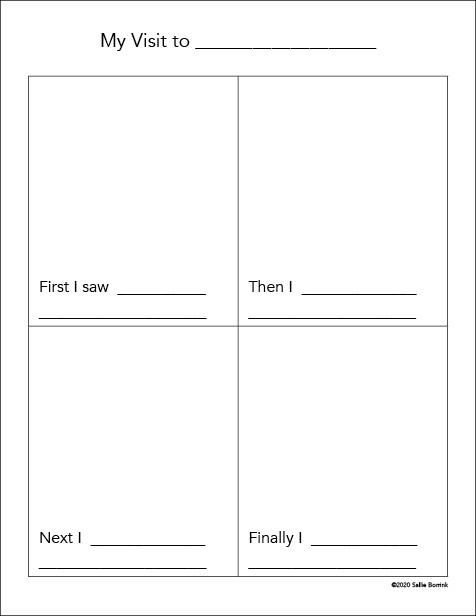
Acrostic Poem: Choose a person or event from the field of astronomy. Create an acrostic poem about him/her or the event.
Travel Brochure: Create a travel brochure for something related to astronomy.
Newspaper Article: Pretend you could interview someone related to the study of astronomy. Who would you choose? Write down 3-5 questions you would ask. Then write a newspaper article with what you think their answers would be using this page in the pack.
Astronomy List It: How many astronomy words can you come up with? Keep a list as you are studying or use this printable from the Unit Study Activity Pack as a final activity to review everything you’ve learned.
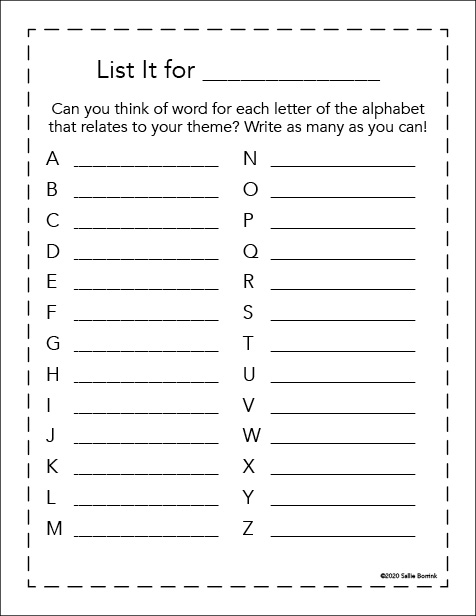
Write a letter to your favorite astronomer. Use one of these Write a Letter Worksheets.
Bible Verses to Memorize
If your family would like to memorize some Bible verses related to the stars and other heavenly bodies, here are a few to consider.
The heavens declare the glory of God; the skies proclaim the work of his hands.
Psalm 19:1Praise him, all his angels; praise him, all his heavenly hosts.
Praise him, sun and moon; praise him, all you shining stars.
Praise him, you highest heavens and you waters above the skies.
Psalm 148:2-4He heals the brokenhearted and binds up their wounds.
He determines the number of the stars and calls them each by name.
Great is our Lord and mighty in power; his understanding has no limit.
Psalm 147:3-5When I consider your heavens, the work of your fingers, the moon and the stars, which you have set in place, what is mankind that you are mindful of them, human beings that you care for them?
You have made them a little lower than the angels and crowned them with glory and honor.
Psalm 8:3-5He speaks to the sun and it does not shine; he seals off the light of the stars.
He alone stretches out the heavens and treads on the waves of the sea.
He is the Maker of the Bear and Orion, the Pleiades and the constellations of the south.
He performs wonders that cannot be fathomed, miracles that cannot be counted.
Job 9:7-10
Everyday Astronomy on SchoolhouseTeachers.com
If you are a member of Schoolhouse Teachers, you can also utilize their extensive materials in Everyday Astronomy.
Have fun exploring!




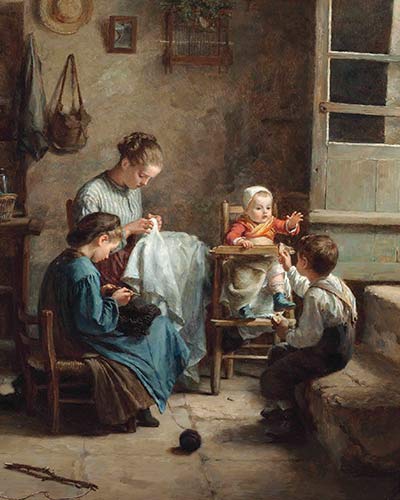


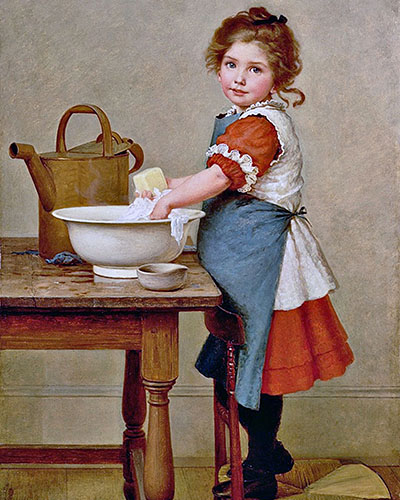

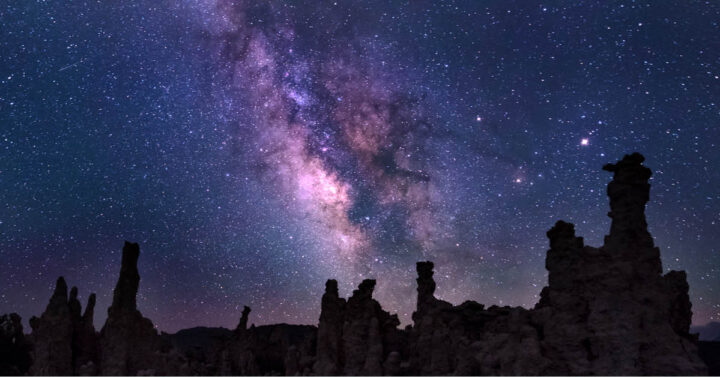
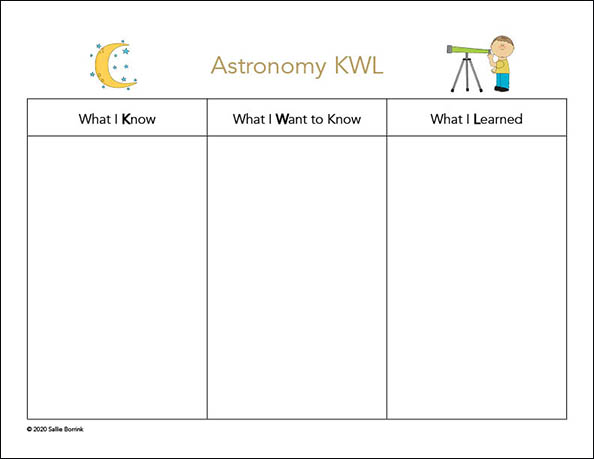
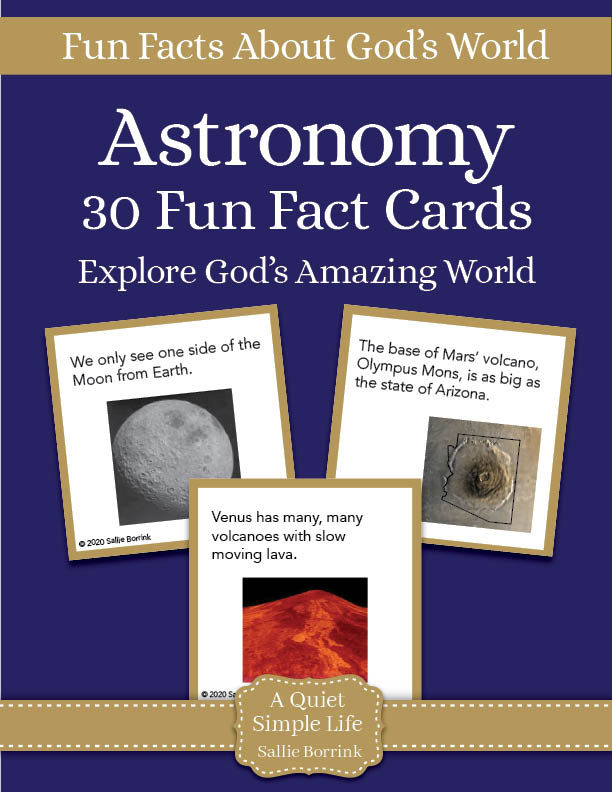
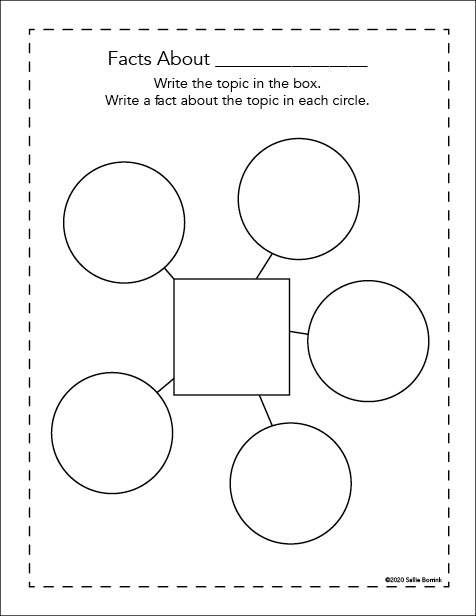
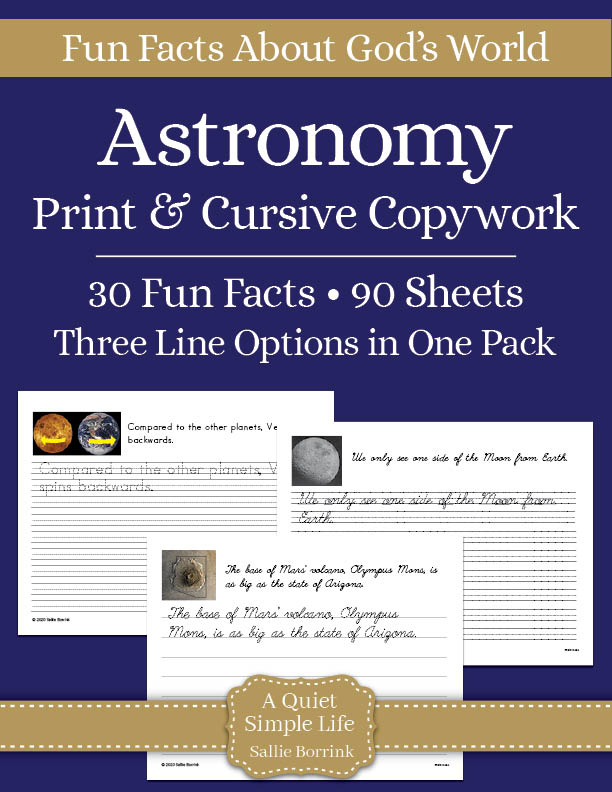
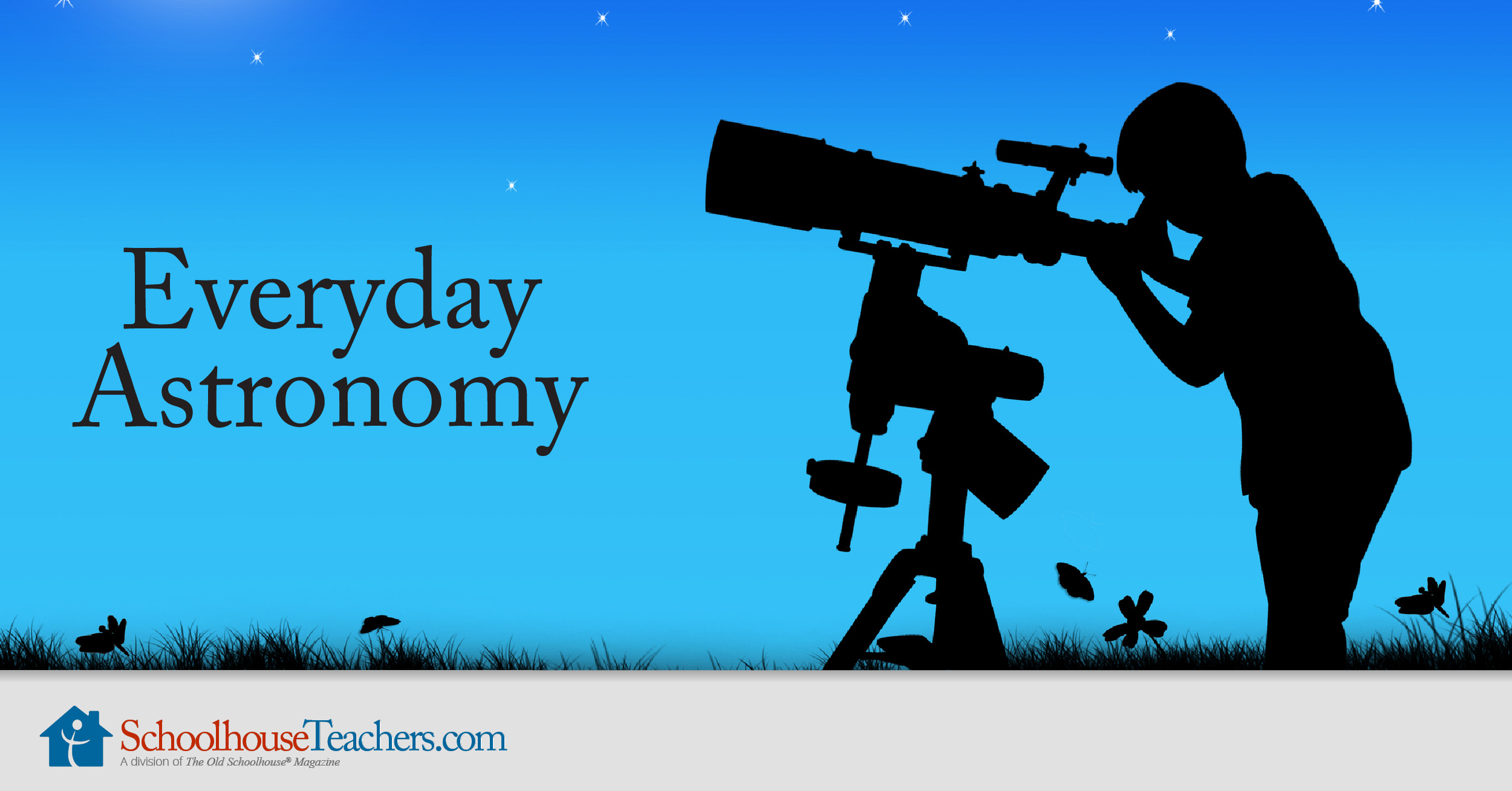





 How To Create A Unit Study
How To Create A Unit Study
Leave a Reply